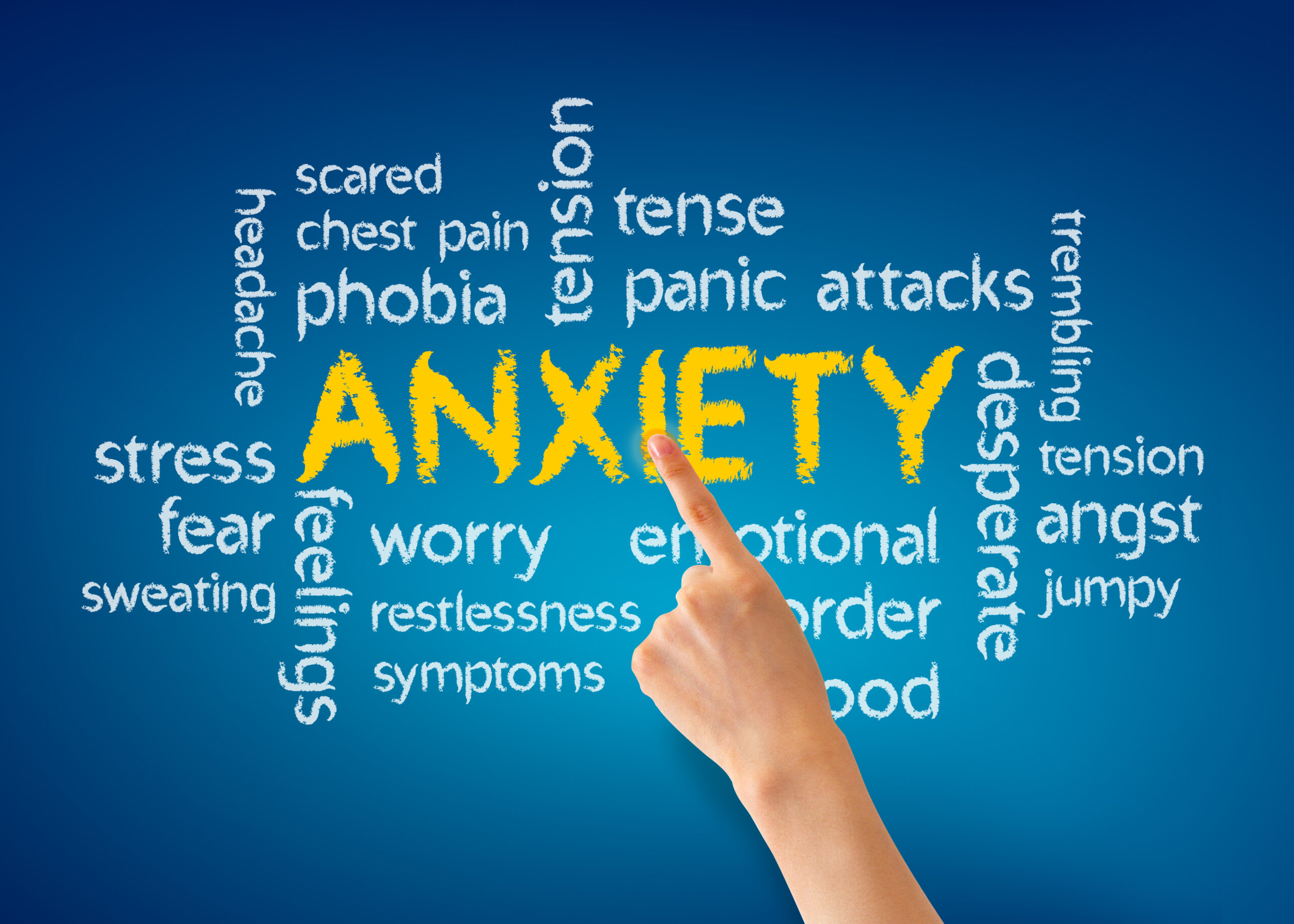Anxiety refers to “anticipation of a future concern and is more associated with muscle tension and avoidance behavior.” It is the body’s natural response to stress. The feelings of anxiety can range from mild to severe. It is atypical for an adolescent to experience frequent, intense, debilitating, persistent worries and/ or fears related to everyday situations, and such anxiety could be indicative of an anxiety disorder. The National Alliance on Mental Illness (NAMI) asserts: “Anxiety disorders are a group of related conditions, each having unique symptoms. However, all anxiety disorders have one thing in common: persistent, excessive fear or worry in situations that are not threatening.” The five types of anxiety disorders listed in the Diagnostic and Statistical Manual of Mental Disorders, Fifth Edition (DSM-5) are generalized anxiety disorder (GAD), obsessive-compulsive disorder (OCD), panic disorder, post-traumatic stress disorder (PTSD) and social anxiety disorder (also known as social phobia). Anxiety disorders are not uncommon and are estimated to affect 31.9% of adolescents. Depression, also known as major depressive disorder (MDD) or clinical depression, is listed in the DSM-5 as a chronic mood disorder. The World Health Organization (WHO) explains that depression is “characterized by persistent sadness and a lack of interest or pleasure in previously rewarding or enjoyable activities,” resulting in significant impairment in one’s daily life. It is not uncommon for people to group anxiety and depression into the same category however they are two distinct conditions. Part of the reason why anxiety and depression can be difficult to differentiate is that there are overlapping symptoms in the two conditions. The relationship between anxiety and depression, and their respective associated clinical conditions (i.e., anxiety disorders and mood disorders) is complex and somewhat idiosyncratic. Nevertheless, because anxiety and depression fall into different classifications of disorders, it is possible for them to co-occur. The following statistics illustrate the prevalence of these two disorders in the adolescent population, as indicated in a recent analysis of federal data from 2013–2019:
- Nearly 1 in 10 children between the ages of 3 to 17 (9.8%) were diagnosed with anxiety.
- More than 1 in 5 adolescents between the ages of 12 to 17 (20.8%) were diagnosed with depression.
- More than a third of high school students (36.7%) self-reported feeling persistently sad or hopeless, and half of those (18.8%) seriously considered suicide.
Findings from a 2021 survey illuminated that 1 in 4 teens self-reported feelings of general anxiety and depression. This prompted the declaration of a national emergency in child and adolescent mental health by the American Academy of Pediatrics along with the American Academy of Child and Adolescent Psychiatry and the Children’s Hospital Association. Empirical data suggests that anxiety and depression frequently co-occur both concurrently and sequentially in children and adolescents, and one often increases the risk of the other over time.
For Information and Support
Every family in need of mental health treatment must select a program that will best suit the needs of their family. When one member of a family struggles, it impacts everyone in the family unit. To maximize the benefits of treatment we work closely with the entire family to ensure that everyone is receiving the support they need through these difficult times. Seeking help is never easy, but you are not alone! If you or someone you know needs mental health treatment, we strongly encourage you to reach out for help as quickly as possible. It is not uncommon for many mental health difficulties to impact a person’s life, long term. Pursuing support at the beginning of one’s journey can put the individual in the best position to learn how to manage themselves in a healthy way so they can go on to live happy and fulfilling lives.
OUR KNOWLEDGEABLE ADMISSIONS TEAM CAN BE REACHED 24/7 AT INFO@PACIFICRTC.COM OR CALL: 800-531-5769






